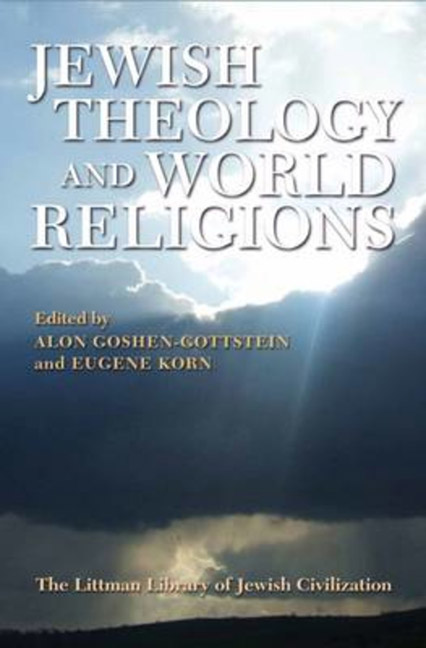Book contents
- Frontmatter
- Dedication
- Preface
- Contents
- Note on Transliteration
- Towards a Jewish Theology of World Religions: Framing the Issues
- PART I PHILOSOPHICAL PERSPECTIVES ON JEWISH PLURALISM
- PART II JUDAISM AND THE OTHER
- PART III JUDAISM AND WORLD RELIGIONS
- Concluding Reflections
- Notes on the Contributors
- Index
Towards a Jewish Theology of World Religions: Framing the Issues
- Frontmatter
- Dedication
- Preface
- Contents
- Note on Transliteration
- Towards a Jewish Theology of World Religions: Framing the Issues
- PART I PHILOSOPHICAL PERSPECTIVES ON JEWISH PLURALISM
- PART II JUDAISM AND THE OTHER
- PART III JUDAISM AND WORLD RELIGIONS
- Concluding Reflections
- Notes on the Contributors
- Index
Summary
THEOLOGY of religions is an area of reflection that has grown in prominence in recent years. Social and political changes, dating from before the Second World War, have given new urgency to relations between faiths and their practitioners. The marked increase in interfaith activity makes reflection on the status of other religions a pressing concern. The great increase in such activity has led to the identification and blossoming of this area as a distinct sub-field of theology. Regardless of the religion from whose perspective such reflection is undertaken, any contemporary theology of religions draws from perspectives articulated throughout that religion's history. Yet the field of theology of religions offers perspectives on other religions that are appropriate to contemporary social realities often radically different from those prevailing in earlier periods. This does not automatically mean that a pluralistic perspective that recognizes the other's religion is taken or that a relativistic perspective of one's own religion need be adopted, but it does mean that the challenges of religious pluralism loom large on the theological horizon. Even if the theologian rejects a pluralistic position, he or she is forced to state a position in dialogue with pluralistic theologians. Theology of religions has grown in the shadow of religious pluralism and the increase in interfaith dialogue, and hence it provides the framework for thinking through one's views of other religions with an emphasis on the challenges of religious pluralism. These include the full or partial validation of other religions and a reframing of the unique position, role, and mission of one's own religion.
The discipline of theology of religions grew initially on Christian soil. More than any other thinkers, Christians of all denominations have engaged with the issues and developed the discipline. This is as true of the work of individual theologians as it is of church documents, among which the Second Vatican Council's Nostra aetate takes pride of place. Jewish theologians and others have entered the discussion following the lead, and in many cases also the language and categories, of Christian scholars and thinkers.
- Type
- Chapter
- Information
- Jewish Theology and World Religions , pp. 1 - 38Publisher: Liverpool University PressPrint publication year: 2012

